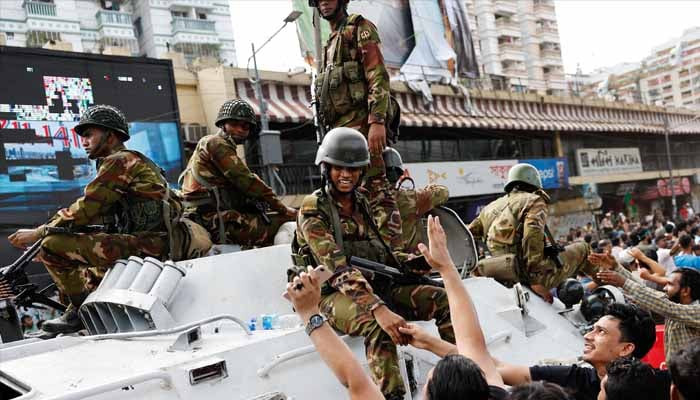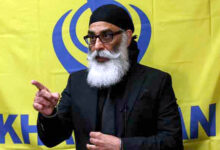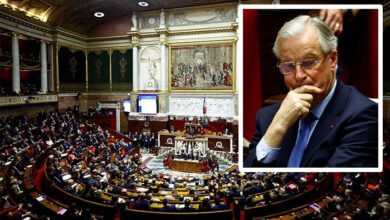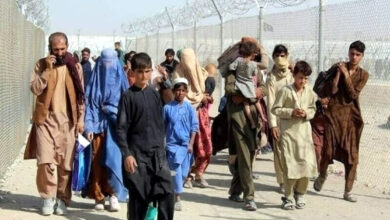Bangladesh Lifts Curfew and Reopens Educational Institutions Following Sheikh Hasina’s Departure

Dhaka:The day after Sheikh Hasina’s resignation, the Bangladeshi military has lifted the curfew imposed across the country. According to a report by the BBC, the military’s Public Relations Department announced the end of the curfew, and educational institutions have reopened.
Schools, colleges, and universities in Dhaka and other cities have resumed operations. However, student attendance is notably low as many students from Dhaka University and other institutions had returned to their hometowns due to the closure of educational facilities and the unrest. It is expected to take some time for these students to return.
The University Teachers Network of Bangladesh is scheduled to meet today to determine the future course of action for resuming educational activities.
Meanwhile, garment manufacturers have announced that factories across the country will remain closed today. A decision on reopening will be made later.
**Sheikh Hasina’s Government Ends**
On August 5, following a month of violent protests and hundreds of fatalities, Bangladeshi Prime Minister Sheikh Hasina resigned and fled the country. The Bangladeshi military had given Hasina a 45-minute deadline to resign.
Reports indicate that Sheikh Hasina attempted to record a speech before her departure but was unable to do so.
**Background of the Protests**
The unrest began last month in response to a quota system that allocated 30% of government jobs to the children of 1971 war veterans. Protests against this system resulted in the deaths of approximately 200 people. The Supreme Court subsequently abolished the quota system, but students continued their protests, demanding justice for their peers and calling for civil disobedience.
**Violence and Casualties**
The protests evolved into a larger civil disobedience movement, and the total number of fatalities has surpassed 300.
**Sheikh Hasina’s Tenure**
Sheikh Hasina was the longest-serving Prime Minister in Bangladesh’s history, having served for 16 years over multiple terms. She was re-elected for a fourth term earlier this year. Her government faced accusations of political repression, including recent actions against the Bangladesh Jamaat-e-Islami party.






